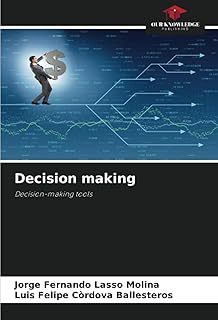Building a culture of smart speed is crucial for organizational success. Rushing into decisions without proper thought can lead to costly mistakes, as exemplified by a professional services company’s software rollout debacle. In today’s fast-paced work environment, speed often takes precedence over sensibility, but the key to effectiveness lies in thinking before acting.
HR leaders face the challenge of systematically instilling this capability within teams, particularly amidst the complexities introduced by AI integration and hybrid work models. The repercussions of hasty decision-making, such as poor hiring choices or ill-considered policy implementations, can have far-reaching financial and cultural implications.
Implementing frameworks like assessing true urgency using the concepts of ‘muddy puddles’ and ‘leaky ceilings’ can help teams prioritize effectively. By distinguishing between issues that resolve themselves and those that escalate, organizations can streamline decision-making processes and allocate resources more efficiently.
Introducing structured decision-making processes like the POINT framework can guide teams in making well-informed choices. By addressing key aspects such as authority, alignment with strategy, data analysis, biases, and feedback mechanisms, teams can enhance decision quality while maintaining momentum.
Embedding thinking time into regular processes through tools like the five-minute pause and monthly decision audits can foster a culture of reflection and continuous improvement. By encouraging teams to review past decisions, identify learning points, and apply insights to future choices, organizations can foster a culture of accountability and strategic thinking.
Leaders play a pivotal role in driving this cultural shift by modeling thoughtful decision-making, promoting the value of thinking time, and recognizing and rewarding teams that prioritize smart action over haste. In a landscape influenced by AI and remote work dynamics, clear decision-making protocols and human judgment remain essential for effective outcomes.
Organizations that excel in training teams to think before they act go beyond individual development; they redesign systems to incorporate thinking time, decision templates, and quality metrics. By focusing on navigating complexity, uncertainty, and competing values, these organizations equip their teams with the skills to make informed decisions and adapt to evolving challenges.
The investment in building these decision-making capabilities yields significant returns, including improved decision quality, reduced reversals, and enhanced team confidence in tackling complex issues. Ultimately, prioritizing thoughtful action over impulsive reactions fosters a culture of strategic agility and sustainable success in today’s dynamic business environment.
📰 Related Articles
- Workplace Learning Trends 2025: Embracing Innovation for Organizational Success
- Virgin Australia to Relist on ASX, Unlocking Growth Potential
- Unlocking the Potential of Smart Home Technology for Modern Living
- Unlocking Success: Profitable 3D Printing Business Models Revealed
- Unlocking Programmatic SEO: Strategies for Effective Automation and Growth
📚Book Titles
- Beneath the Glowing Surface: Investigating the Enigmatic World of the Anglerfish
- Unlocking Second Chances: The Revolutionary Intersection of Organ Regrowth, Biotechnology, and Longevity
- Strategic Real Estate Investment: Profiting through Market Understanding, Capital Growth and Negotiation
- Winning Strategies: The Comprehensive Guide to Sports Betting and Developing Your Tipping System






